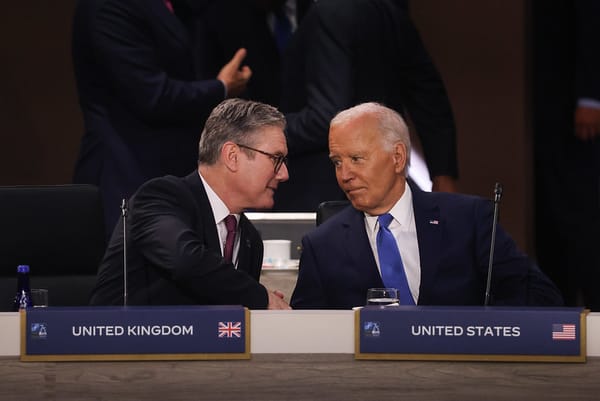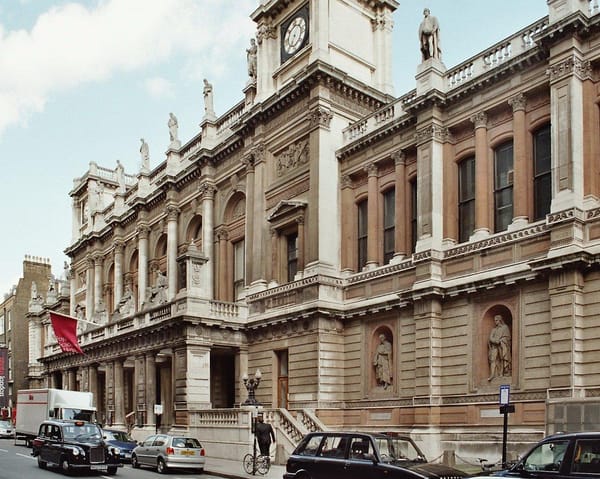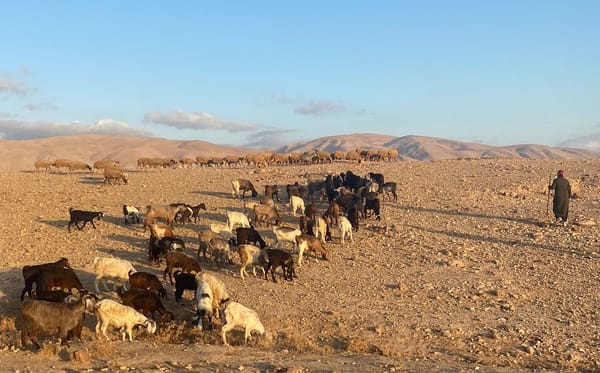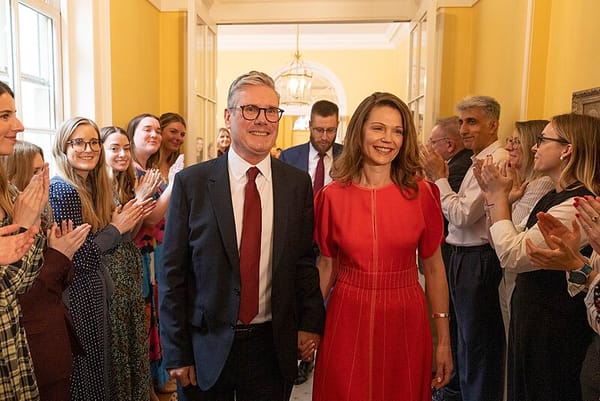Radicalising Moses
Reading The Prince of Egypt as a tale of inter-communal solidarity.
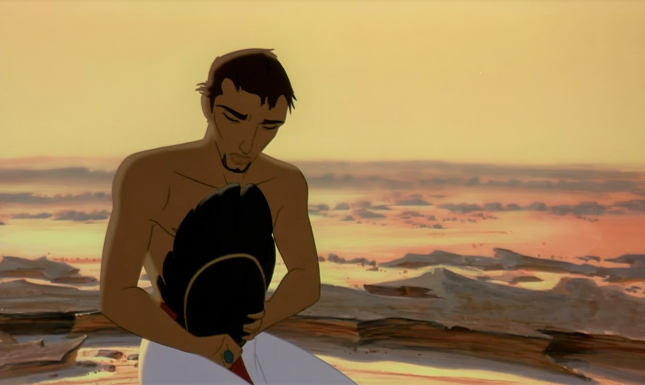
When it comes to popular culture, it is rare to find media that chimes with Jewish festivals. As a child at a Jewish school, I remember three exceptions: the 1996 animated special “A Rugrats Chanukah”, the Friends episode “The One with the Holiday Armadillo”, and the 1998 animated musical The Prince of Egypt. Amidst British culture’s implicit Christian hegemony, these three American imports allowed for the novelty of recognition while also satisfying our Jewish Studies teachers’ often ineffective efforts to make Judaism both fun and contemporary. But what makes this retelling of the Exodus story so extraordinary? And might it hold some inspiration for current radical Jewish politics?
Exodus by Hollywood
The Book of Exodus has inspired filmmakers since cinema’s earliest decades. In 1905, French cinema pioneers Pathé Frères produced La vie de Moïse, using the spectacular splitting of the Red Sea as a central attraction in a period of film history purveying startling visual tricks. Classical Hollywood powerhouse Cecil B. DeMille then went on to adapt the story twice, in 1923 and 1956, with both films entitled The Ten Commandments. The latter starred a burly Charlton Heston and a surly Anne Baxter, both of whom, like the film’s monumental settings, were displayed to full effect with new widescreen technologies. Adapting Exodus involves an investment in the epic: a tale peppered with supernatural spectacles, its story lends itself to cinema’s capacity to figure the fantastical.
The Prince of Egypt follows this history. It marked the second major project by the Spielberg co-founded studio DreamWorks: the studio which proved that the mode of production pioneered by Disney could be replicated to similar effects by its competitors. While Disney were pivoting to ancient legends, with Hercules (1997) and Mulan (1998) drawing upon Greek mythology and Chinese folklore, Dreamworks turned its attention to Judaism’s own foundational mythology. With musical earworms galore and sublime animations combining hand-drawing and CGI, it is unsurprising that it was a major success. The film boasts a sizeable roster of talent in its voice roles, from Hollywood stars to British household names, and an impressive range of musicians on its soundtrack. Jewish-Yemini Israeli singer Ofra Haza sang “Deliver Us” in eighteen different international dubs of the film, R&B group Boyz II Men harmonised the saccharine “I Will Get There” and pop divas Whitney Houston and Mariah Carey won an Oscar for their “When You Believe”. In a decade in which Hollywood became increasingly financialised, embracing conglomeration across media industries, The Prince of Egypt played and won in the game of high investment, high return, grossing over three times its budget.
Seder and Struggle
Undergirding The Prince of Egypt’s industrial prowess and aesthetic enticements, is a narrative vindicating the values of liberation. Pesach, and the Haggadah especially, lends itself to an engagement with a range of political causes. In 1919, the Galician Bund produced a Haggadah calling for socialist revolution. In 2018, Jewdas followed suit, with the act of reading their Haggadah at a Seder with Jeremy Corbyn leading to the hysterical Daily Mail headline “They raised a beetroot in the air and shouted f*** capitalism”. And every Pesach, my Mum brings out her lesbian Haggadah from the 1980s, which fuses the Exodus story with affirmations of feminist community and politics.
The Seder plate has also been a site of political intervention, with some feminist and queer Jews including an orange on it as a vindication of marginalised Jews’ place in Jewish life. An olive on the Seder plate has served similar political purposes, with Jewish Voice for Peace advocating its inclusion as a gesture of solidarity with the Palestinian struggle. For Jews invested in a politics of liberation, Pesach is not simply an opportunity to recite ancient lore, but a festival with multiple resonances, its capacity for analogy working to illuminate contemporary fights for justice. Might The Prince of Egypt have something to contribute to this most central of Passover traditions?
“When did you start caring about slaves?”
The first time in the film that Moses (Val Kilmer) encounters his siblings, he is as dismissive of the dreams of freedom envisioned by his sister Miriam (Sandra Bullock) as he is of her claim that they are related. After recognising the lullaby she sings, however, Moses begins to confront the reality of his heritage and his connections with the enslaved people. Later in the film, after a failed attempt at convincing the Pharaoh Rameses to free the Hebrews, Moses returns to Miriam and his brother Aaron (everyone’s favourite Jewish daddy, Jeff Goldblum). Here, Aaron questions the despondent Moses, “When did you start caring about slaves? Was it when you found out that you were one of us?” Moses concedes: “I did not see because I did not wish to see.”
Although the Tanakhic version of the story is ambiguous about Moses’s knowledge of his roots (Exodus 2:11), The Prince of Egypt establishes his radicalisation as catalysed by the revelation of his heritage. Yet the film also critiques this very process. Aaron’s words challenge the notion that cultural sameness is the foundation upon which a politics of liberation should be grounded. They imply that Moses shouldn’t have needed this personal discovery to extend his compassion to the enslaved Hebrews. Earlier in the film, Moses and his adoptive brother Rameses (Ralph Fiennes) wreak havoc during a chariot race, oblivious to the persecution around them; when Moses is faced with a shackled Tzipporah (Michelle Pfieffer), he humiliates her in front of a jeering crowd. The social hierarchy which grants Moses and his brother power, and oppresses Hebrew and Midianite slaves, goes unquestioned. Yet now, Moses understands that his prior ignorance was an act of choice and that, even, in his life as a Prince of Egypt, he could have previously seen the situation differently.
Rethinking the Promised Land
In the very first Pickle newsletter, Michael Richmond observed how some in our community deploy the language of antiracism cynically as a means of presenting Jews as singularly oppressed. Aaron’s words push us to think beyond our shared identity, and towards a politics of solidarity in which the struggle for liberation extends beyond our kin. We should not forget the role played by Tzipporah in the film: she is a rebel, who is not a Hebrew but a Midianite. The intercultural relationship between her and Moses also signals a kind of bond beyond cultural difference: it is together that they forge a path to freedom.
The film was not released in Egypt because of the censure of artistic depictions of prophets. Discomfort around the film in Egypt was also compounded by public concerns over historical revisionism. Although the film’s depiction of Ancient Egypt is impressively accurate in some respects, its rendition of slavery diverges from historical record. While Exodus establishes the Israelites as slaves in Egypt, evidence points to the enslavement of Nubians and Libyians among others, with no definitive proof of Israelite bondage. While these conflicts between biblical lore and historical record are commonplace, clashes between the Tanakhic idea of Egypt and contemporary Egypt coalesced with national discord about the government’s relations with Israel. With the Second Intifada fresh in the minds of many sympathetic to the Palestinian struggle, an American film depicting a fictionalised rendering of Jewish heroism and cross-cultural solidarity — while also portraying Moses, an Islamic prophet — was likely to read, at the very least, as insensitive.
Ultimately, The Prince of Egypt is big-budget Hollywood fare. Perhaps for you, it’s simply something to put on the TV for the family while you prepare the charoset. Yet, just as some Jewish organisations, such as The Free the Slaves Passover Project, have taken this festival as an opportunity to highlight liberation struggles and the endurance of modern slavery, so too might this Exodus adaptation inspire us to adopt a more critical politics. The Prince of Egypt boasts animated spectacle and cheesy songs, and it also reminds us that freedom from oppression cannot be achieved by suffering communities on their own. Solidarity is a prerequisite. The “deliver us to the promised land” chanted histrionically by The Prince of Egypt’s choir need not be understood as the literal promised land, let alone the modern state of Israel, but that imagined place towards which our politics is oriented. A place where liberation abounds.
Jacob Engelberg is a doctoral researcher in film studies at King’s College London.

